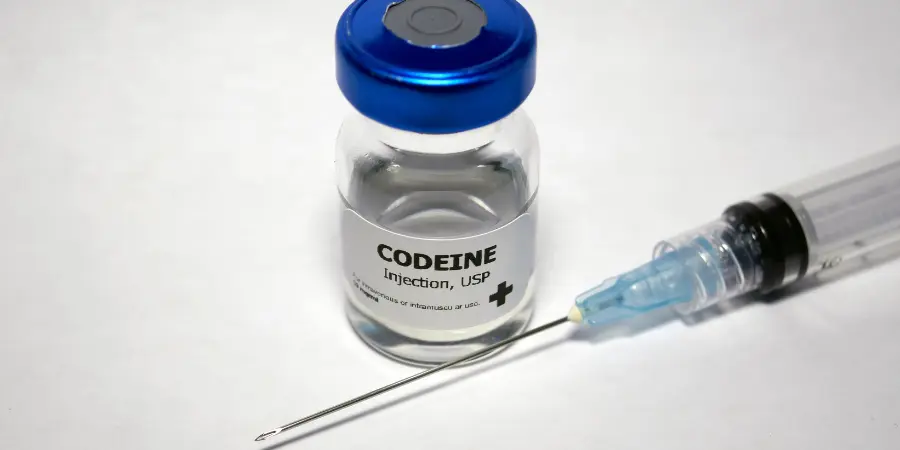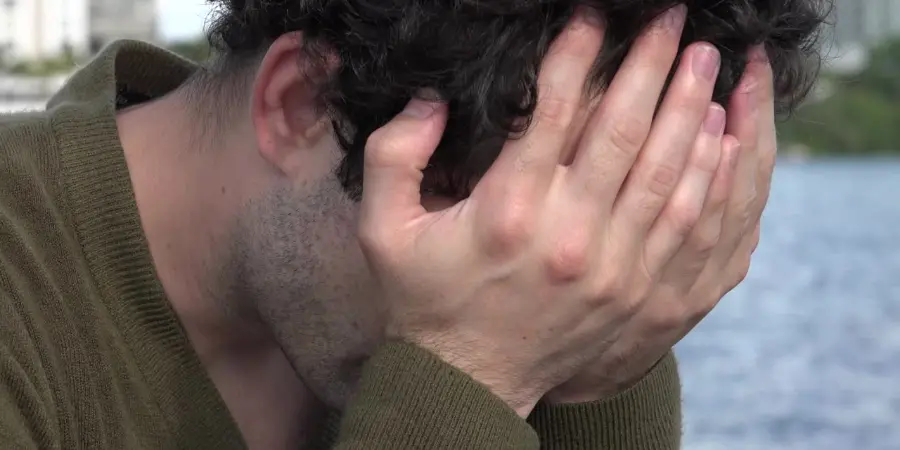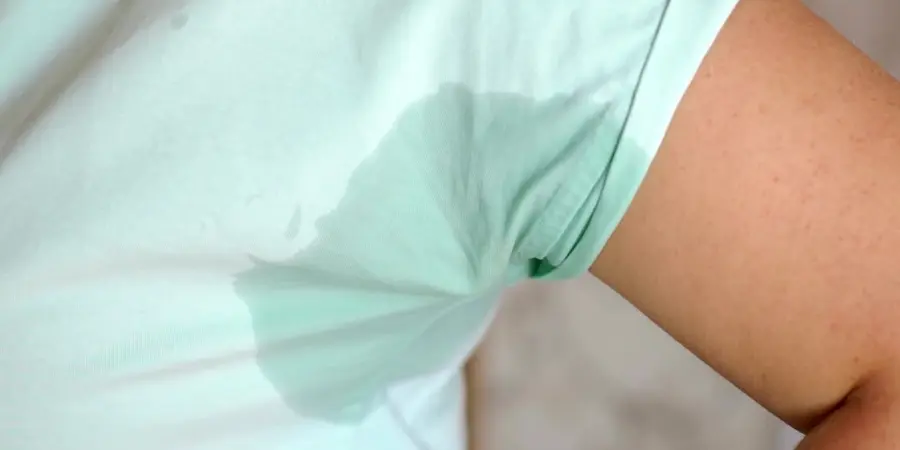
Written by:

Medically Reviewed by:
Last Updated:
August 7th, 2025
Codeine Addiction | Symptoms, Effects and Treatment
Codeine can frequently mislead its users into thinking it is entirely safe, as many people do not consider this legal drug to be addictive or damaging to health. Codeine addiction, however, is an increasingly growing problem and has the potential to ruin lives. On top of its destructive side effects, in some cases codeine can be a gateway drug into other opiates, including morphine and heroin, as users continually reach for a better high.
In order to prevent codeine addiction wreaking havoc on your health, relationships, and career, codeine rehab is a necessary route that can offer you the tools you need to recover. On this page, we will take a look at the signs and symptoms of codeine addiction and what you may expect from a codeine rehab programme.

What is Codeine addiction?
Codeine is a commonly prescribed opiate analgesic (painkiller). Derived from morphine, it is stronger than paracetamol or ibuprofen and is used medically to relieve symptoms of mild to moderate pain or to suppress a cough. Codeine also has addictive properties, and those who use it can develop a dependency on the drug in as few as three days of daily use.
Codeine works by stimulating the opioid receptors in the brain and impacting neurotransmitters, causing a rush of endorphins. These chemical changes to the brain will result in the user experiencing a pleasurable relaxation that triggers the reward system. Our brain will link the use of codeine to reward, and this can lead to future cravings for the drug.
With continued use, you may find yourself needing increasingly higher doses of codeine to feel the same effects. Eventually, you will start to notice withdrawal symptoms occurring whenever you try to reduce your dose or stop taking codeine. It does not take long for tolerance and dependency to materialise, and you may find it difficult to quit codeine without professional help.
If you have tried to stop taking codeine and were unable to, or if you continue to take codeine despite being aware of the negative consequences it is having, you may have an addiction to codeine. If you would like to talk to our experts and get the help you need, call us today.
Signs and symptoms of Codeine abuse
If you are worried about your own codeine use, or that of a loved one, you may have noticed some telling signs that your drug use is getting out of control. You may experience both long and short-term side effects that affect you both physically and mentally.
Some of the short-term side effects of codeine use include:
- Nausea and vomiting
- Constipation
- Fatigue and drowsiness
- Slurred speech
- Dry mouth
- Dizziness
- Headaches and migraines
- Sweating
- Itching
- Constricted pupils
- Slowed breathing and heart rate
- Memory loss
- Lack of coordination
- Loss of consciousness
- Seizures
Some of the long-term side effects of codeine use include:
- Anxiety and depression
- Damage to internal organs, including the kidneys, liver, brain, and eyes
- Decreased cognitive function
- Long-term memory loss
- Intestinal blockages
- Damage to eyesight
- Insomnia

The dangers of codeine misuse are always present and can have devastating impacts on your health and wellbeing. Not only can regular use of codeine cause lasting damage to your physical health, but users may also notice cognitive and behavioural changes that may last for years to come, even after cessation of use.
Combining codeine with other substances is also considered particularly dangerous and can have life-threatening consequences. These substances include:
- Alcohol
- Valium
- Sleeping tablets
- Heroin
- Methadone
- Tranquillisers
If you regularly mix codeine with any of the above substances, it is vital that you seek medical advice before attempting to quit. Tackling the codeine withdrawal period under the guidance of medical professionals is the safest way to recover.
Don’t wait for codeine to destroy your life – start treatment today and get the help you need to get clean.
Treating Codeine addiction
Addiction is a chronic condition and without the correct treatment and maintenance, the sufferer is likely to continue their destructive behaviours. While there are free treatment options available on the NHS and local charities, these are usually on an outpatient basis and you can be subjected to long waiting times. Private codeine rehab facilities operating inpatient programmes are proven to be the most effective course of treatment for substance abuse and addiction.
Primrose Lodge provides a rehabilitation programme that addresses the root causes of codeine addiction and enables the individual to undergo a complete change in thinking and behaviours. You will be taken away from usual triggers, allowing you to fully focus on your sobriety and lay a strong foundation for your ongoing recovery.
What can I expect from Codeine rehab?
As with any other substance addiction treatment, you will go through three separate stages of codeine rehab. The first will be an assisted detox, and it is here that your body will rid itself of any drugs in its system. You may experience unpleasant withdrawal symptoms at this stage, but our team will be on hand to make you comfortable and ensure your safety throughout.
After battling the physical symptoms of withdrawal, the second stage of codeine rehab will approach the psychological aspects of your codeine addiction. Through a combination of cognitive and behavioural therapies, you will begin to understand the reasons for your drug abuse and learn coping mechanisms to prevent these old behaviours from returning. You will take part in both group and one-to-one therapy sessions, as well as other holistic activities such as nutrition and exercise, yoga, meditation, massage, art therapy, and acupuncture.
At Primrose Lodge, we are pleased to offer the highest quality of care from a team of staff all with first-hand experience in addiction. You will be able to immerse yourself in a relaxing and therapeutic environment surrounded by a support network of understanding individuals.
One of our previous clients, Debby, describes her experiences in rehab:
“Ricky the therapist was really jolly and also matter-of-fact. He was in recovery himself so he understood from that side too.”
Having a non-judgemental space to heal in, and others who can relate to your experiences with codeine really does make all the difference to your recovery. Building a network of support around you can be crucial to staying off of codeine in the long run.
The final stage of your recovery takes place after you have left codeine rehab – this is where the hard work truly begins. You will potentially be exposed to triggers that may have led you to use codeine in the past, and now you will have to put the lessons learned in rehab to practice. It is recommended that you attend aftercare programmes and local support group meetings to keep you on track and prevent relapse.
Codeine detox and withdrawal
You may be wondering what to expect from codeine detox, as sometimes this process can seem a little daunting. We are often asked the questions: what withdrawal symptoms will I get? Will codeine detox be painful? Is codeine detox dangerous? Not knowing what to expect can even put users off of recovery all together, but please do not worry. Our team can guide you through the detox period safely and comfortably.
The withdrawal symptoms often associated with codeine detox include:
- Anxiety
- Insomnia
- Watery eyes and nose
- Sweating
- Excessive yawning
- Muscle aches and pains
- Increased heart rate
- Nausea and vomiting
- Stomach cramps
- Diarrhoea
- Goosebumps and chills

Your body experiences withdrawal symptoms as your brain tries to readjust to a life without codeine. Although this stage of recovery can be uncomfortable, codeine withdrawal symptoms will typically fade within two weeks, with the worst of your symptoms subsiding after the first few days.
Do I need Codeine rehab?
As a legal, prescription medication, a common misconception about codeine is that it is not harmful or addictive. Oftentimes users are unaware of the risks they are taking every time they consume the drug. Others may be in denial about their problem and don’t see their codeine use as an issue.
If you are unsure whether your codeine use warrants treatment, take our quick quiz and find out if codeine rehab is the right choice for you:
| Is codeine rehab right for you? |
|---|
| Have you been using increasingly larger doses of codeine to get the same effect? |
| Has your original source of pain resolved, yet you still experience cravings for codeine? |
| Have you tried going to different doctors or chemists to avoid being challenged about your codeine use? |
| Have you ever missed work or other commitments as a result of your codeine use? |
| Have you hidden the amount of codeine you take from others? |
| Have you experienced financial difficulties due to purchasing codeine? |
| Have you ever borrowed or stolen money in order to buy codeine? |
| Have you resorted to purchasing codeine online? |
| Have you experienced difficulties in relationships as a result of your codeine use? |
| Do you experience feelings of fear or agitation when your codeine supply is running low? |
| Have you tried to reduce or stop your codeine intake but couldn’t? |
| Do you experience withdrawal symptoms if you try to reduce or stop your codeine intake? |
While you may not have experienced all of the above scenarios, if you have answered yes to any of them, codeine rehab can help you to overcome addiction and prevent your situation from deteriorating.
The next steps
At Primrose Lodge, we only use proven and effective treatment methods designed with our client’s success in mind. Our goal is to restore every individual’s physical, mental, and spiritual health, and free them from the constraints of addiction.
If you or a loved one is suffering from an addiction to codeine, there is hope and a solution. Please call us on the number below to discuss your individual case with our highly trained and experienced clinical team.

